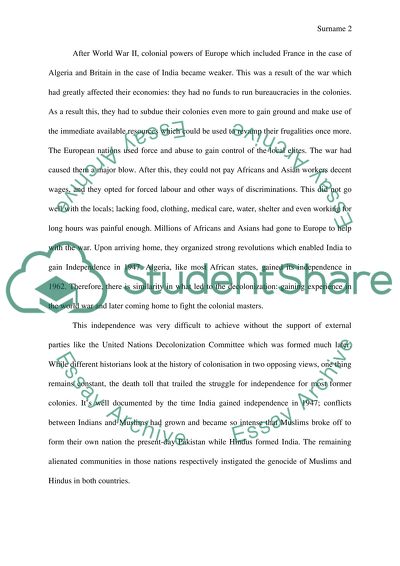Cite this document
(“Comparison between the Decolonization of Algeria and India Research Paper”, n.d.)
Retrieved from https://studentshare.org/history/1490391-comparison-between-the-decolonization-of-algeria
Retrieved from https://studentshare.org/history/1490391-comparison-between-the-decolonization-of-algeria
(Comparison Between the Decolonization of Algeria and India Research Paper)
https://studentshare.org/history/1490391-comparison-between-the-decolonization-of-algeria.
https://studentshare.org/history/1490391-comparison-between-the-decolonization-of-algeria.
“Comparison Between the Decolonization of Algeria and India Research Paper”, n.d. https://studentshare.org/history/1490391-comparison-between-the-decolonization-of-algeria.


